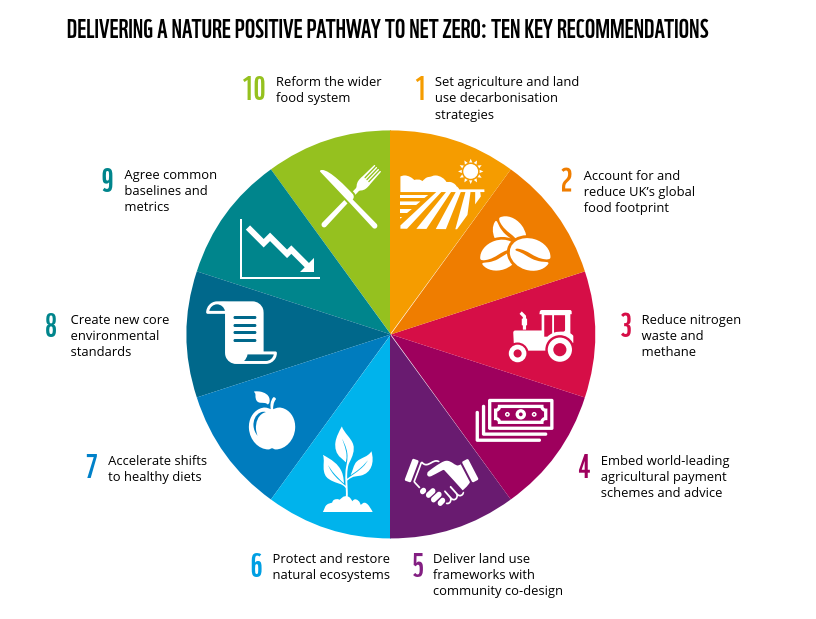UK governments have set ambitious and welcome climate and nature commitments, but there is no shared vision for what our landscapes will look like in a net zero world and a distinct lack of detail when it comes to the role of agriculture and land use. The UK Net Zero Strategy set out unambitious emissions reductions plans for the English agriculture, land use and food sectors, with little clarity on the policies to meet these weak targets. This is echoed in equivalent strategies in Scotland and Wales.
WWF are calling on governments around the UK to urgently set out their own decarbonisation strategies for agriculture and land use, as part of their commitments to net zero and nature’s recovery.
Land of Plenty is WWF’s flagship agricultural strategy: it is WWF's blueprint for how the agriculture and land use sectors in the UK can help fight climate change and bring nature back to life. In the report, we aim to fill in some of the detail and consider what the agriculture and land use sectors across the UK need to do to put us on a nature-positive pathway to meeting our climate commitments in 2030 and beyond.
The independent analysis that contributed to the report demonstrates that it is possible and necessary to:
- Reduce UK direct agricultural greenhouse gas (GHG) emissions by at least 35% by 2030 and 51% by 2050 on 2018 levels
- Switch UK land from a net source of GHG emissions to a net sink by 2040 at the very latest
- Halt and reverse the loss of UK nature by 2030
- Cut UK farming’s overseas carbon footprint particularly relating to soy feed and fertiliser inputs by at least 31% by 2030 and 57% by 2050 on 2018 levels
WWF’s vision for landscapes in a net zero world (as set out in Land of Plenty) is one bursting with life, where the connections between the food people eat and how it has been produced are re-established, where growers and producers get a fairer share of the market, where nature thrives within and outside farmland and where shifts in diets support high quality livestock production in circular, regenerative systems. We believe all of this is possible in the UK without offshoring our environmental and climate impacts, and indeed can provide a model for similar progress globally. The summary report and full report can be found here Land of Plenty: bringing nature back to life. The page also contains specific Land of Plenty summaries for England, Wales and Scotland, and links to all the independent research used to develop the Land of Plenty Pathway.



